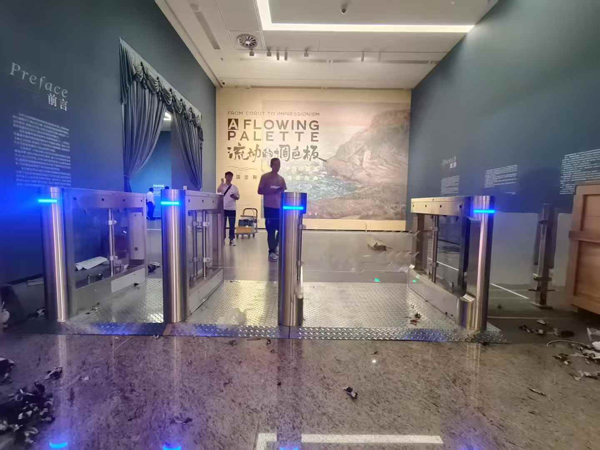0086-18218346058 info@qiruisafe.com
Swing gate turnstiles are a popular choice for museums due to their balance of security, crowd control, and aesthetic appeal. Here’s an overview of their use in museum settings:

Key Features of Swing Gate Turnstiles in Museums:
1. Controlled Access
- Allows one person per swing, preventing tailgating or unauthorized entry.
- Can be integrated with ticketing systems (RFID, barcode scanners, or facial recognition).
2. Aesthetic Design
- Often made with sleek materials (stainless steel, glass) to blend with museum architecture.
- Can be customized to match the museum’s branding.
3. Durable & Low Maintenance
- Built to handle high foot traffic while remaining smooth and quiet.
- Motorized or manual options available.
4. ADA Compliance
- Some models include wider gates for wheelchair accessibility or can be paired with automatic doors.
5. Directional Control
- Can be set to allow entry-only, exit-only, or bidirectional flow (useful for timed exhibitions).
Common Use Cases in Museums:
- Main Entrances – Ensures only ticketed visitors enter.
- Special Exhibits – Controls access to premium or timed-entry displays.
- Staff/Back-of-House Areas – Restricts unauthorized personnel.
Integration Options:
- Ticketing Systems (e.g., RFID, QR codes)
- Visitor Counting (for analytics and crowd management)
- Alarms & Sensors (for forced entry detection)